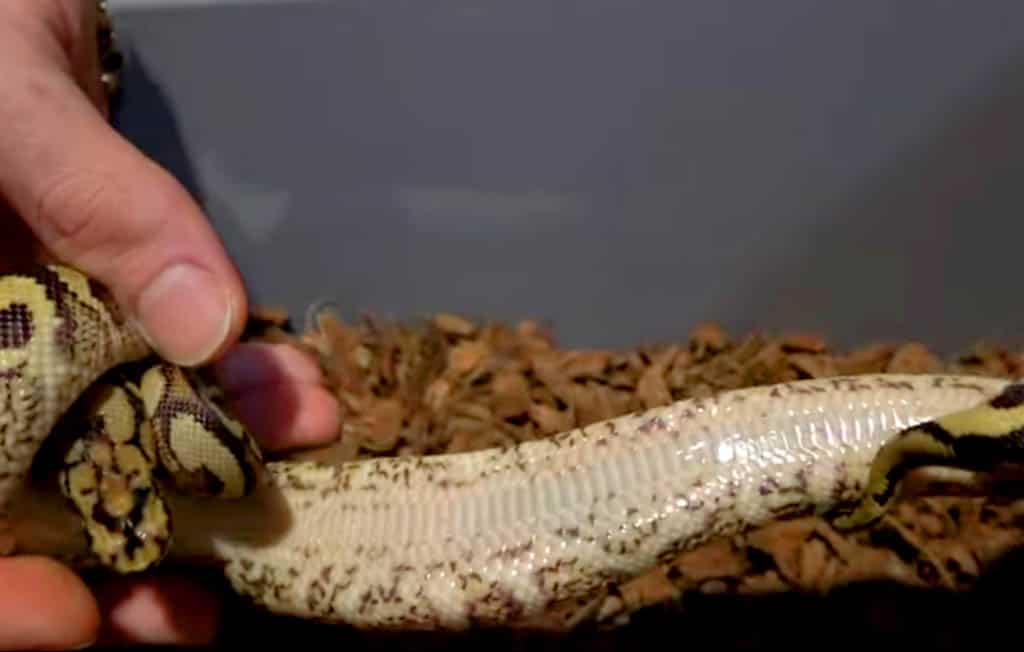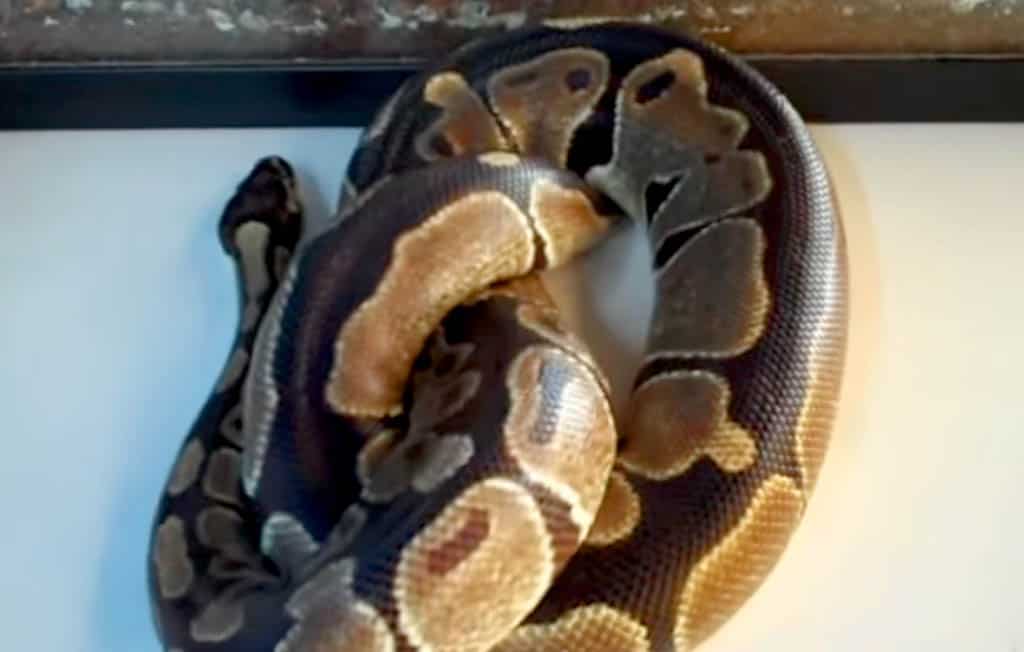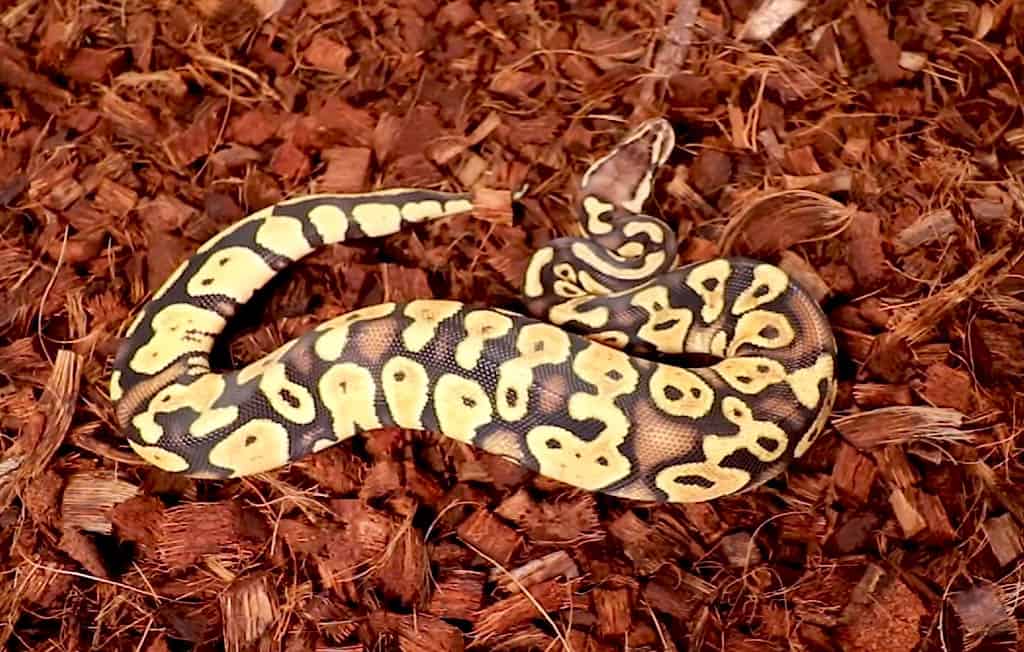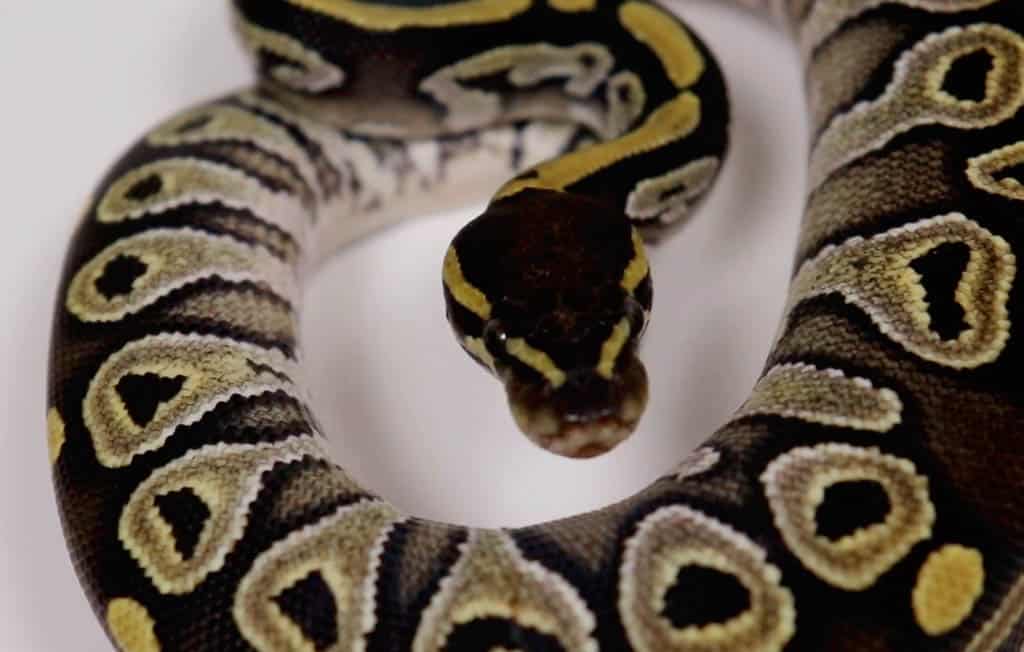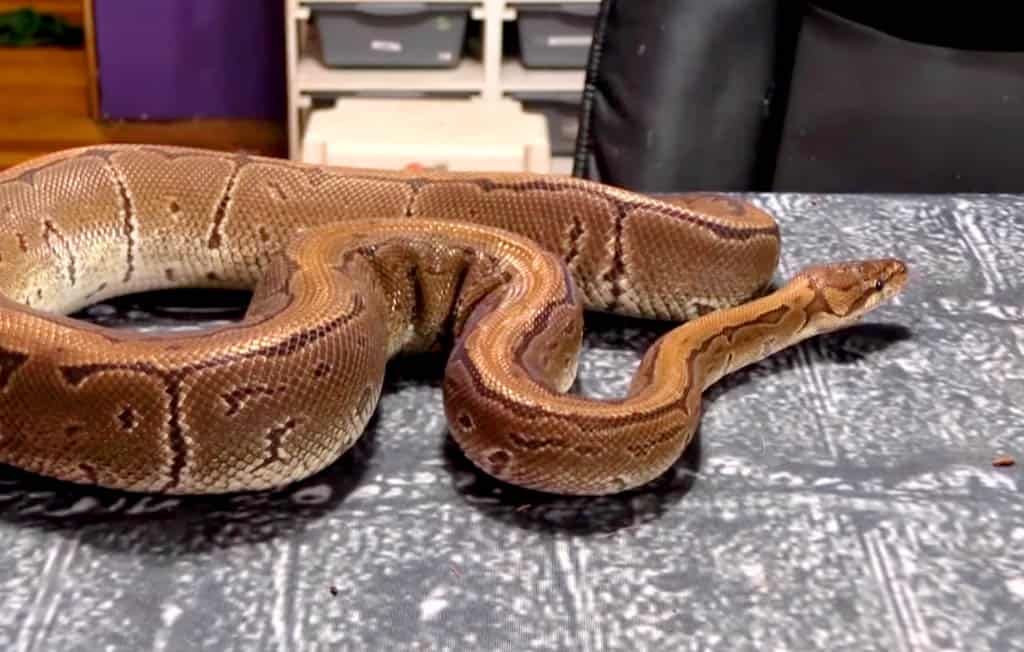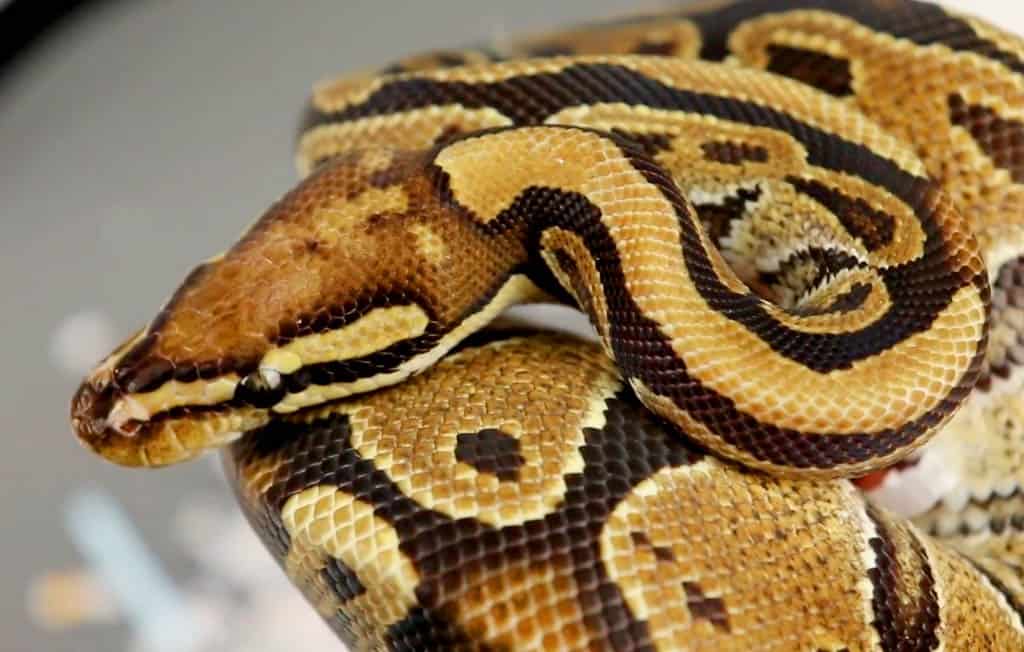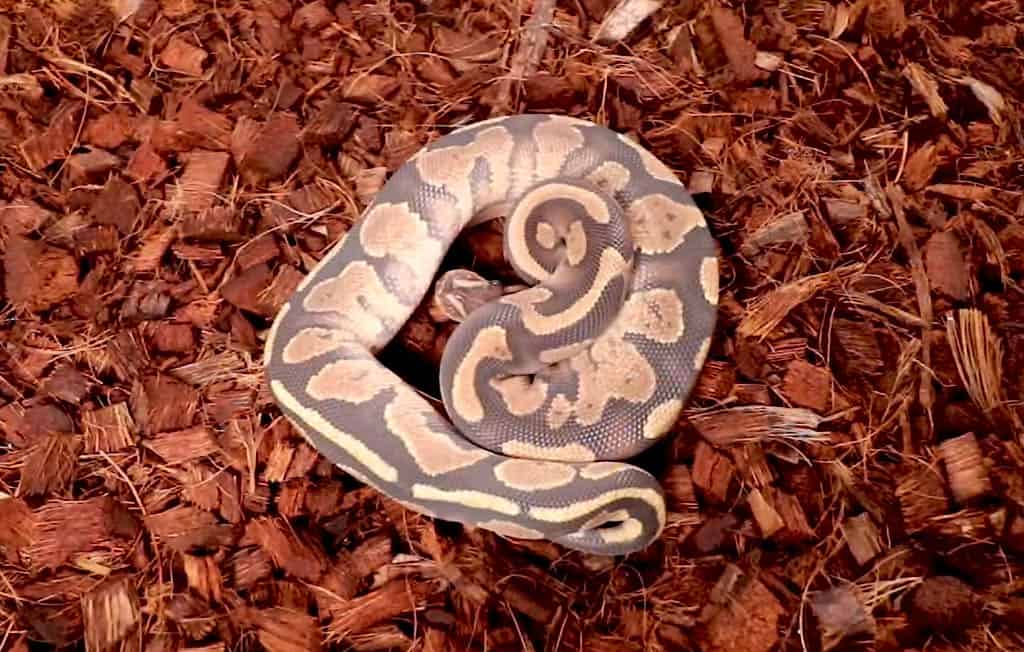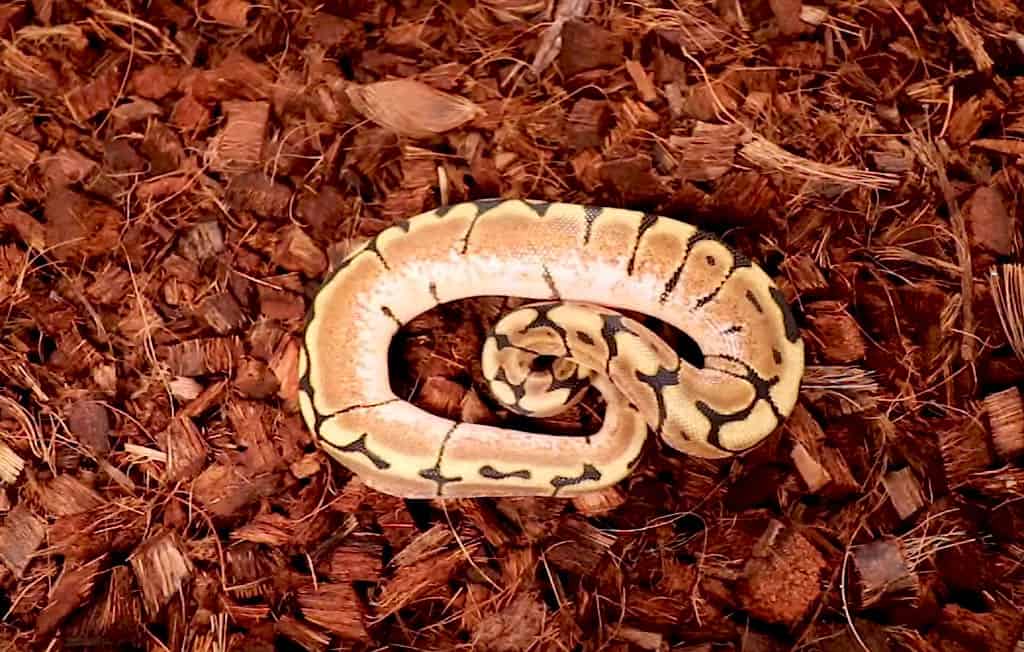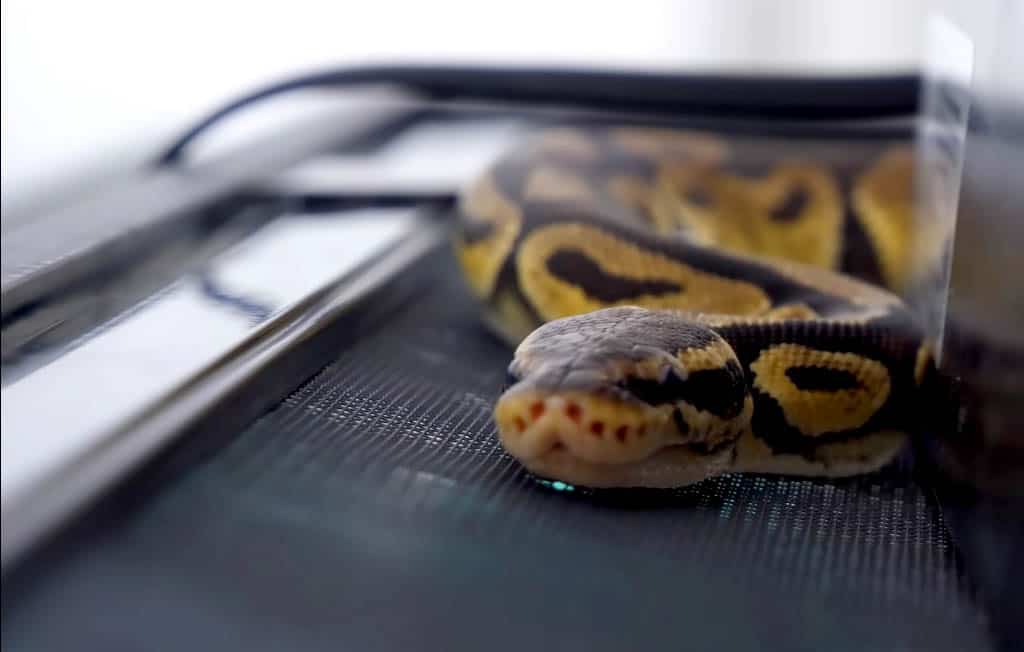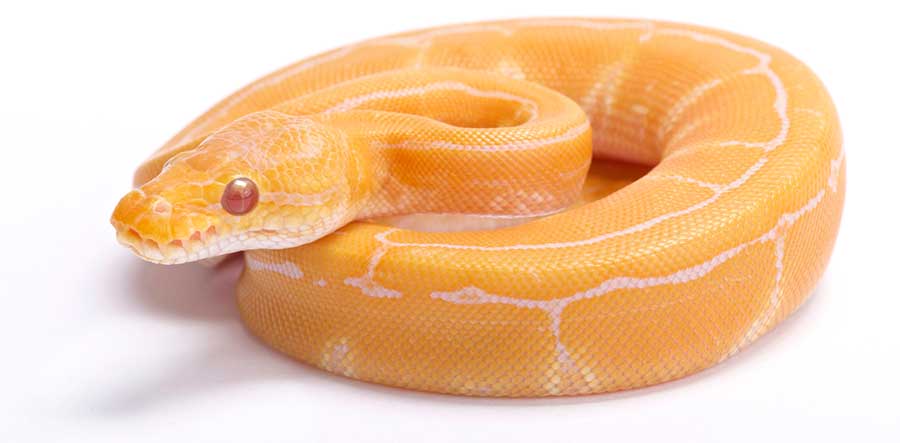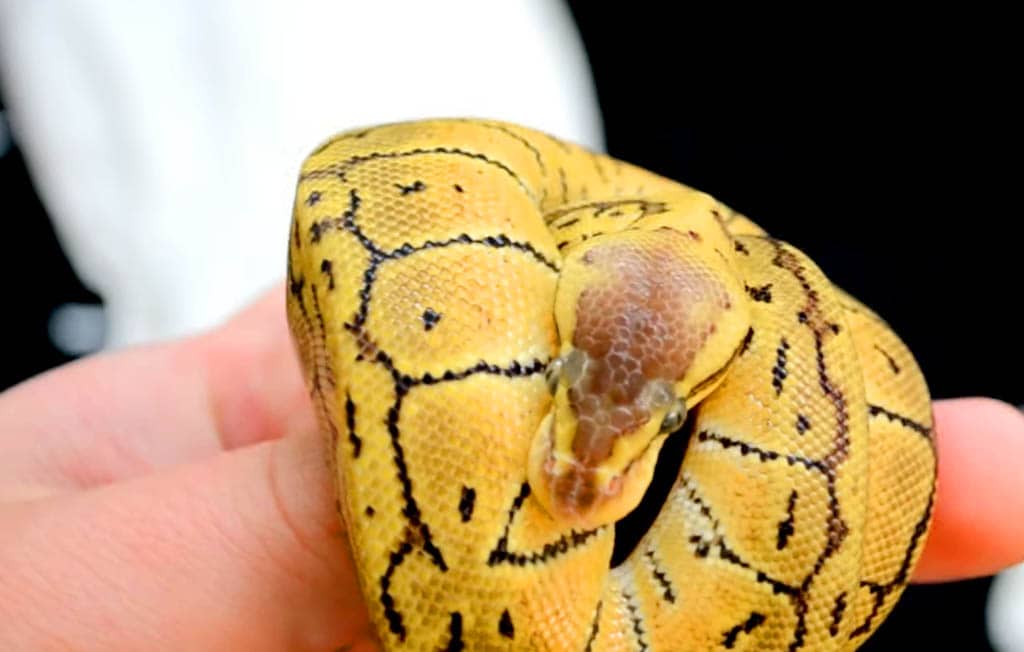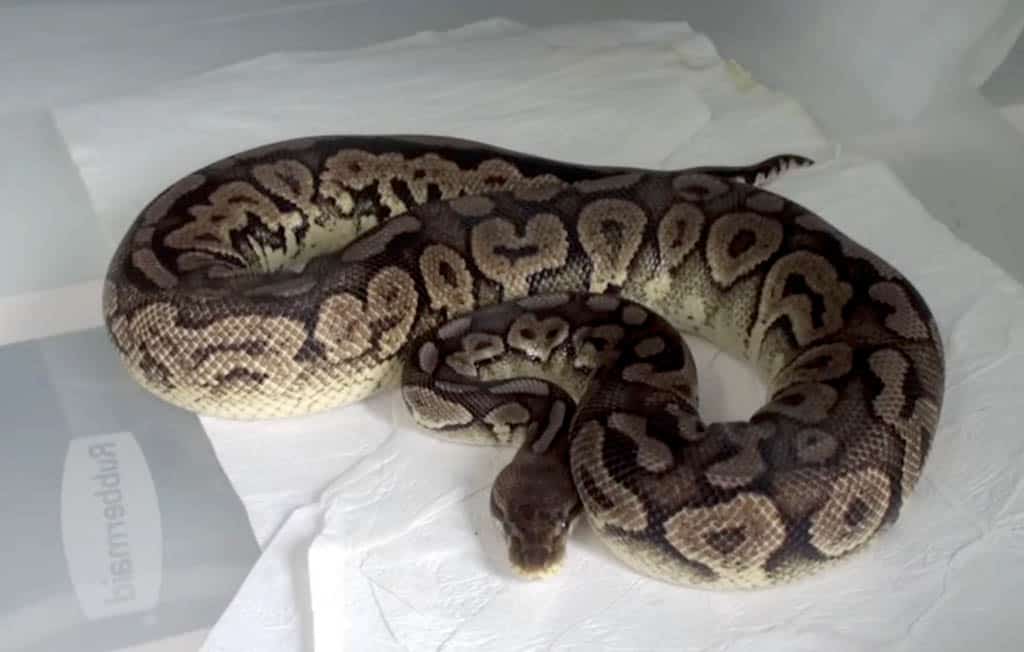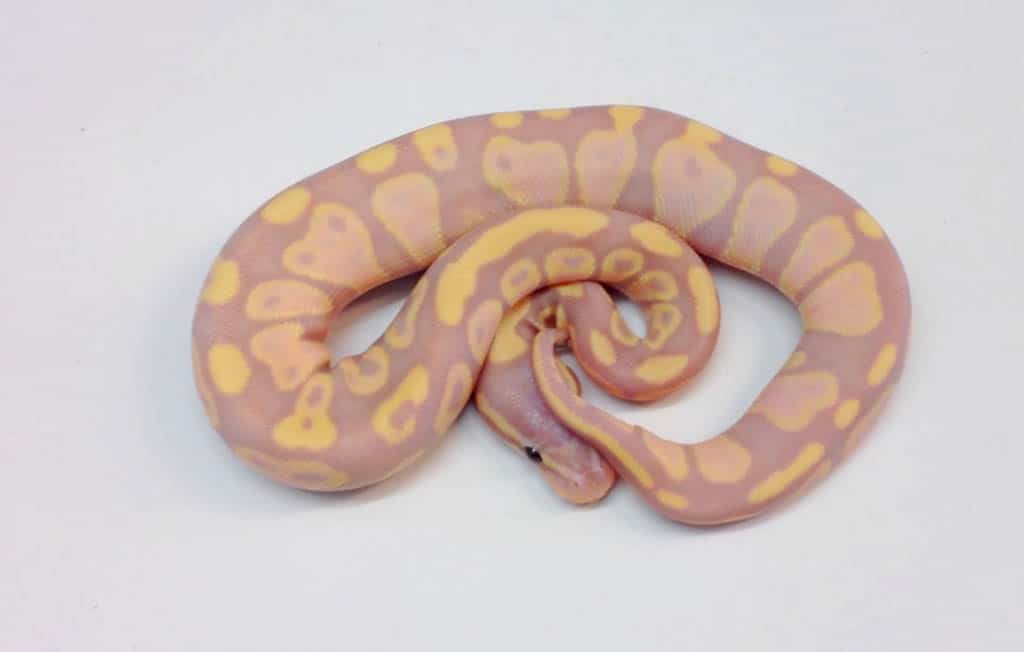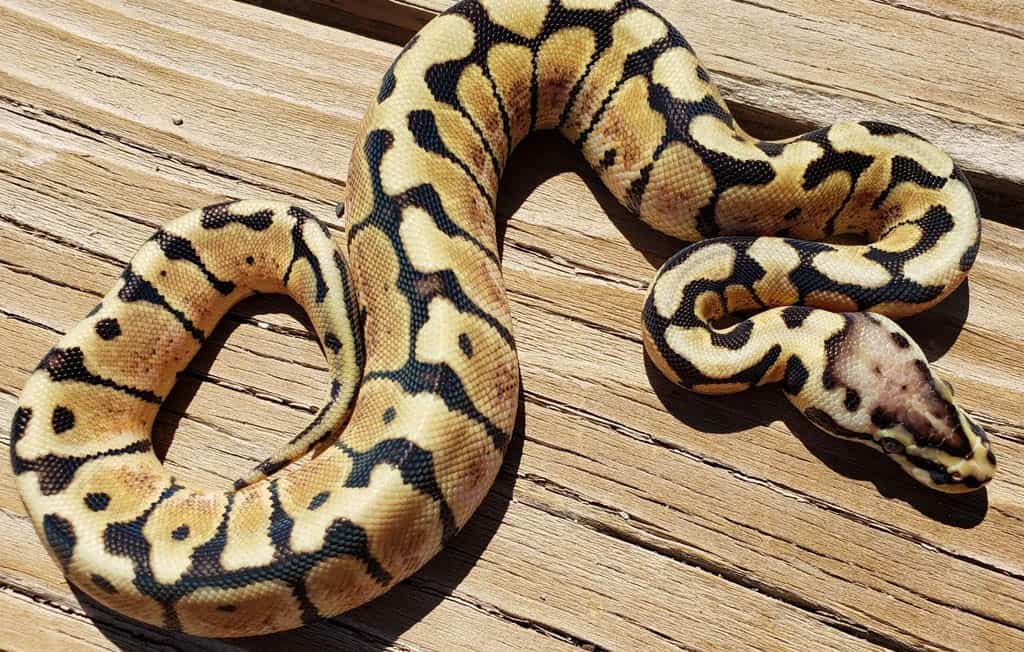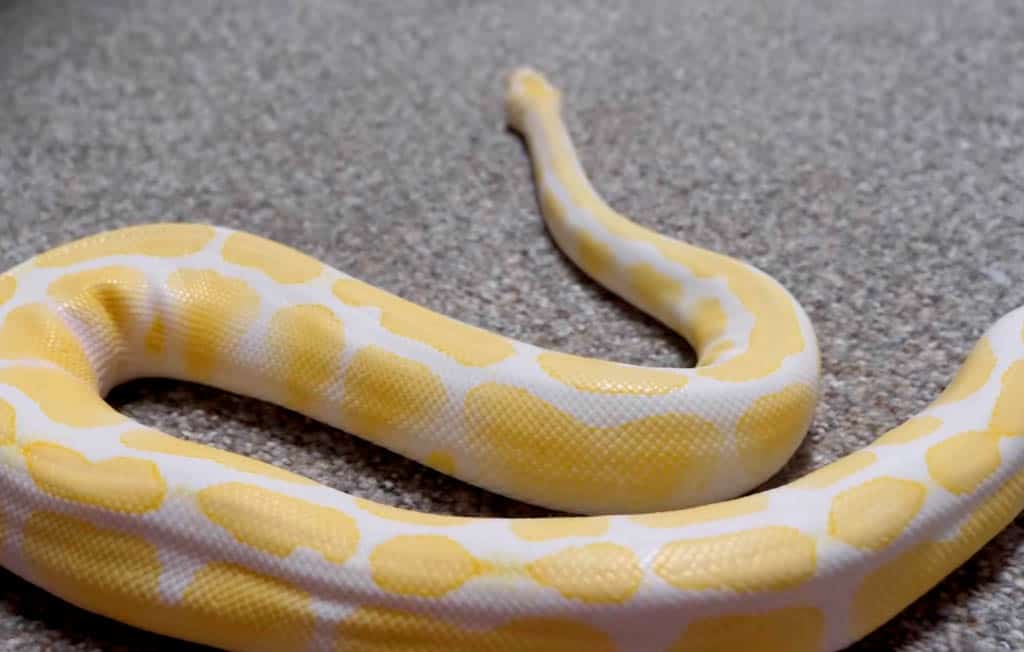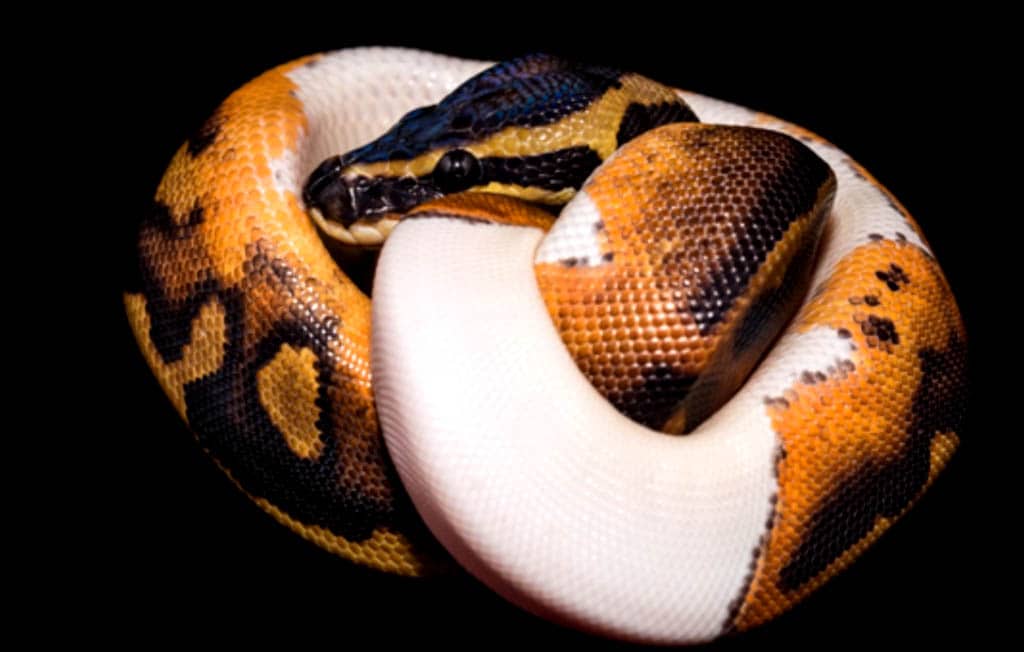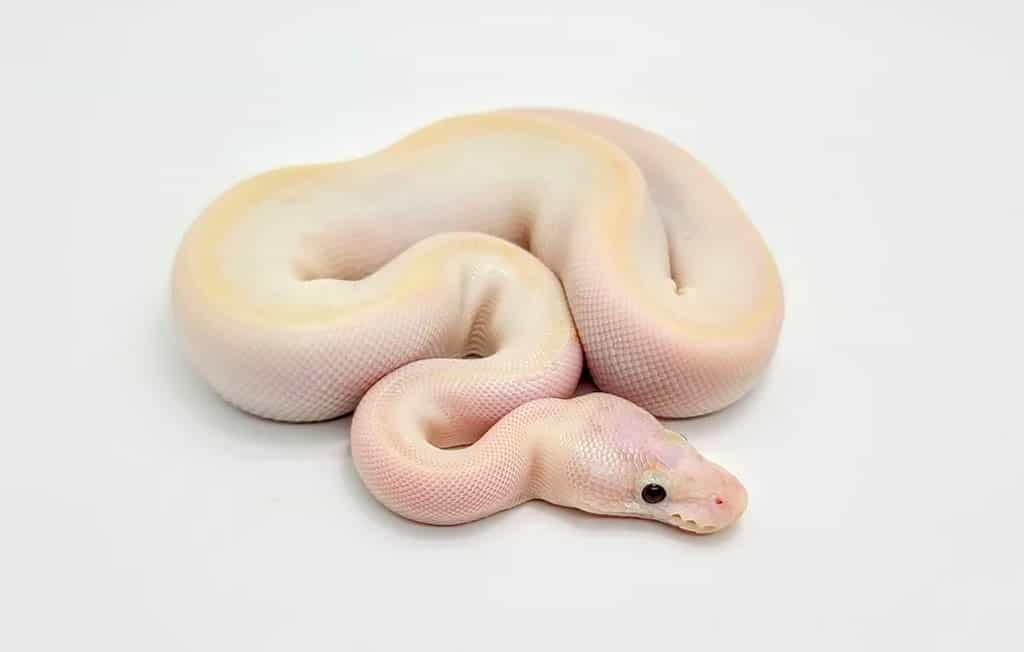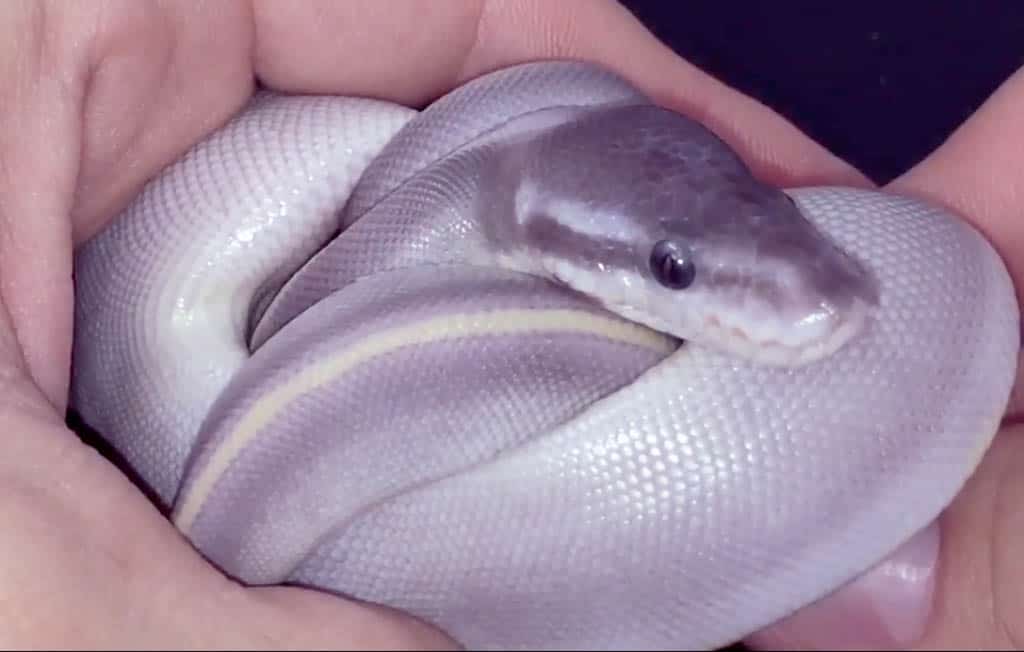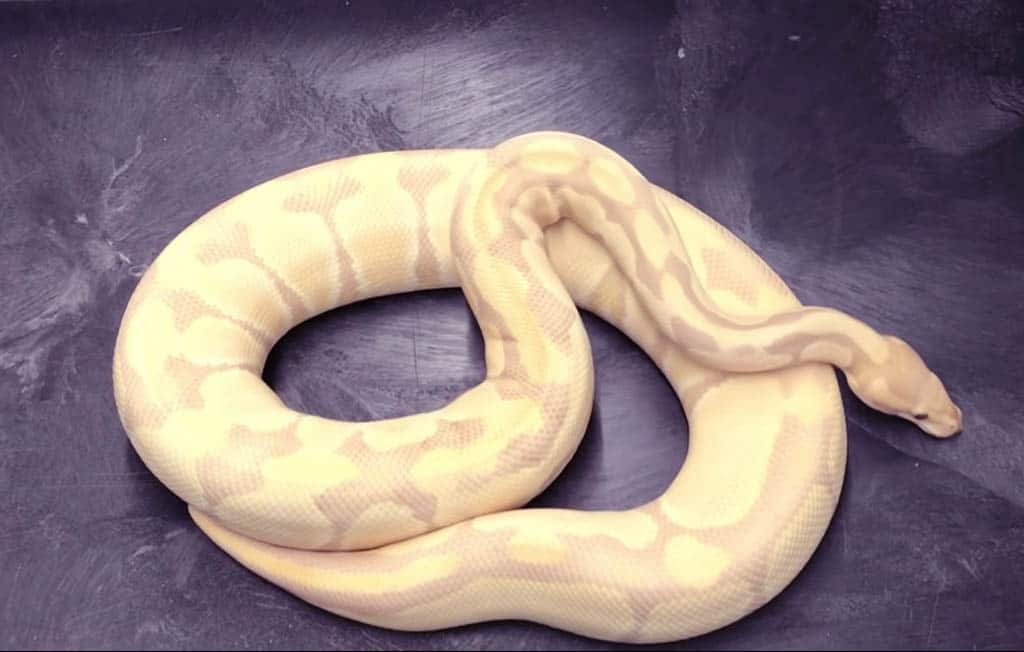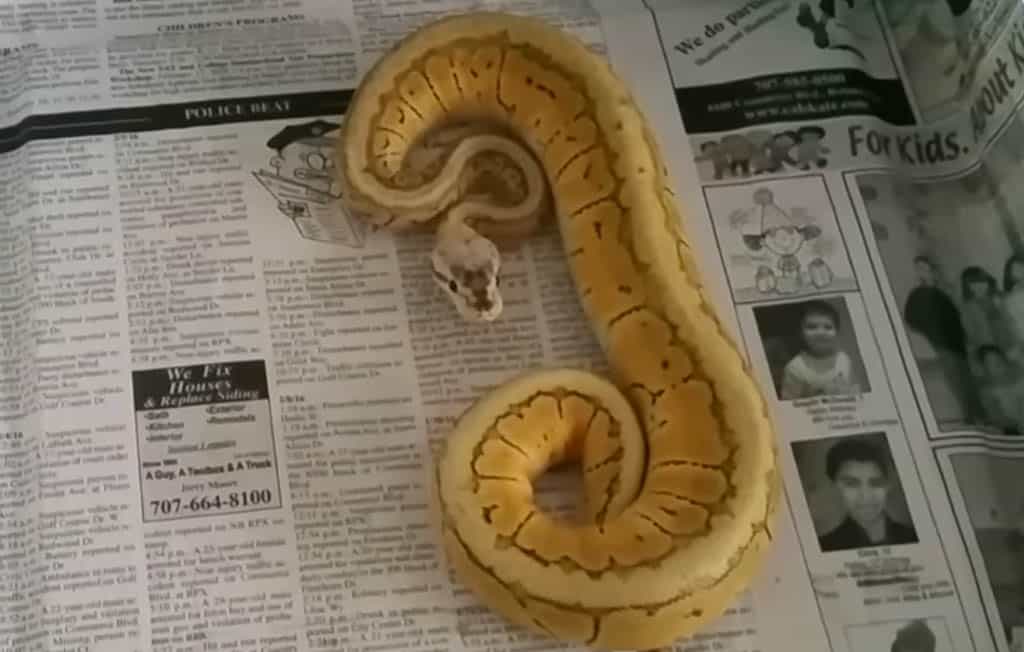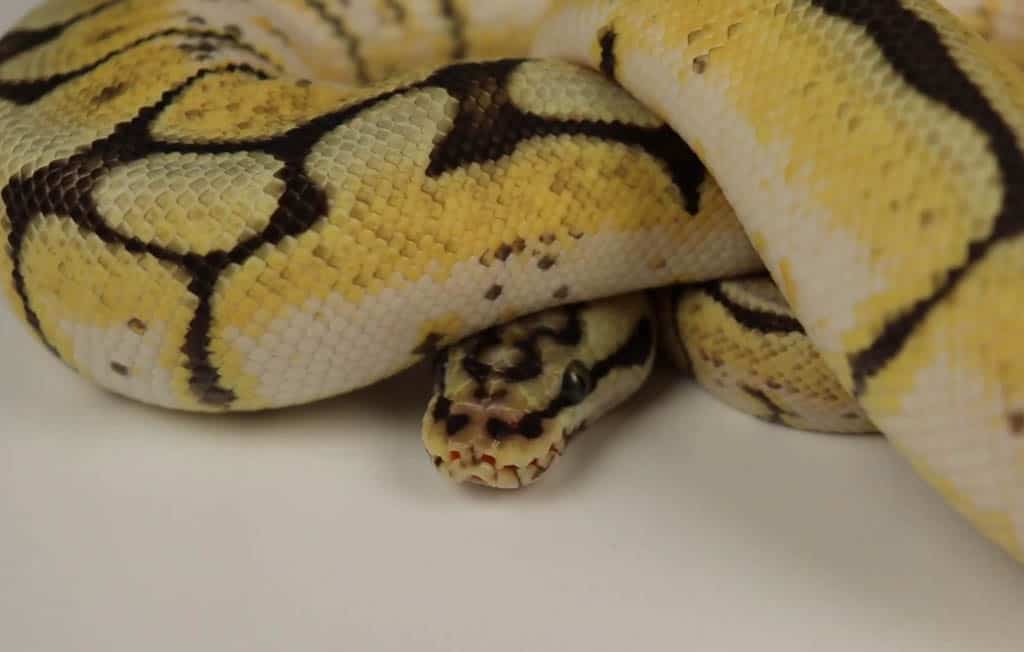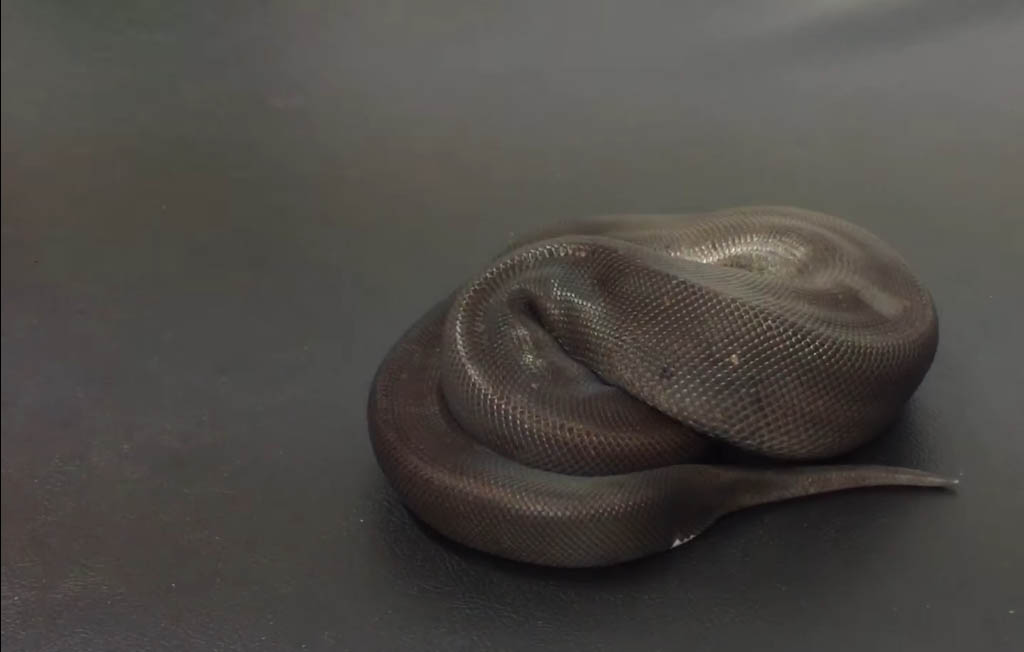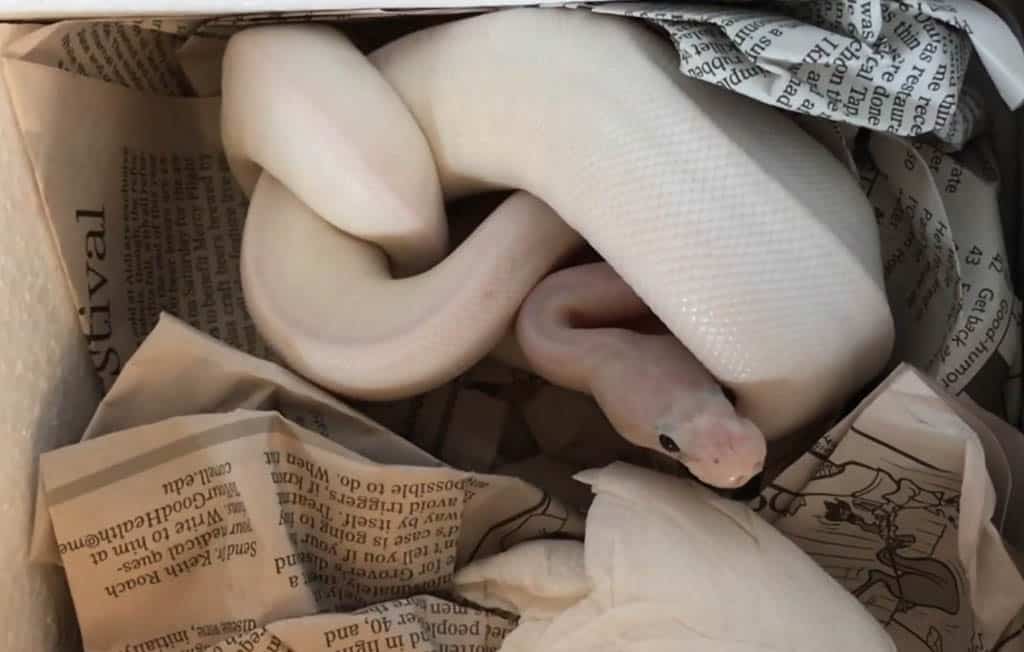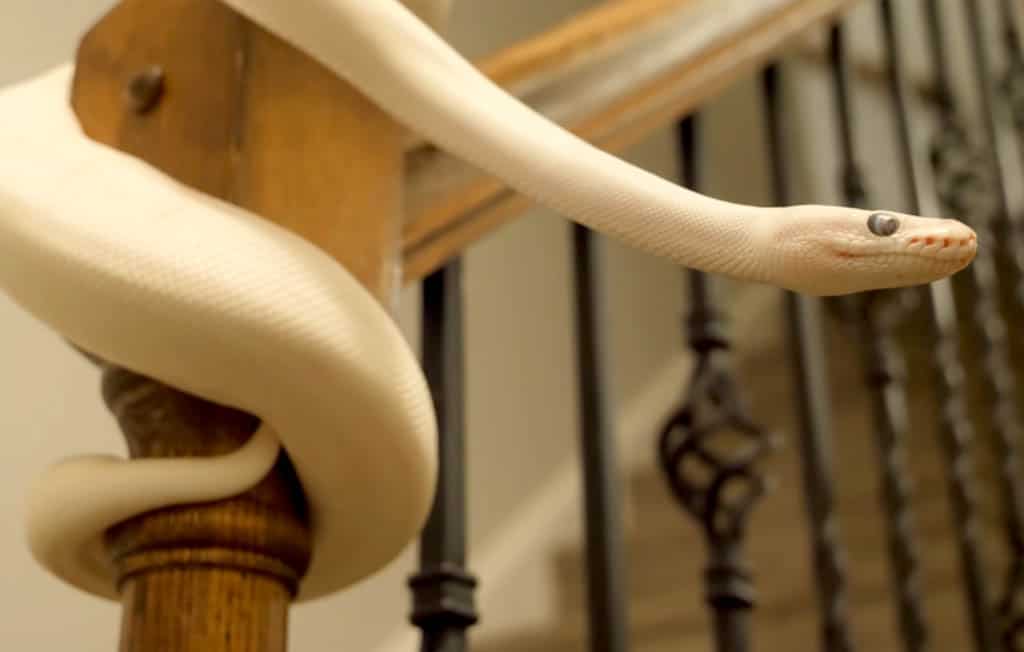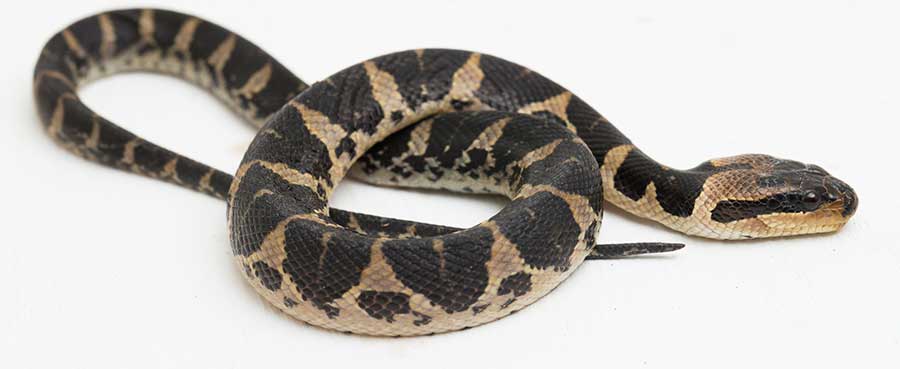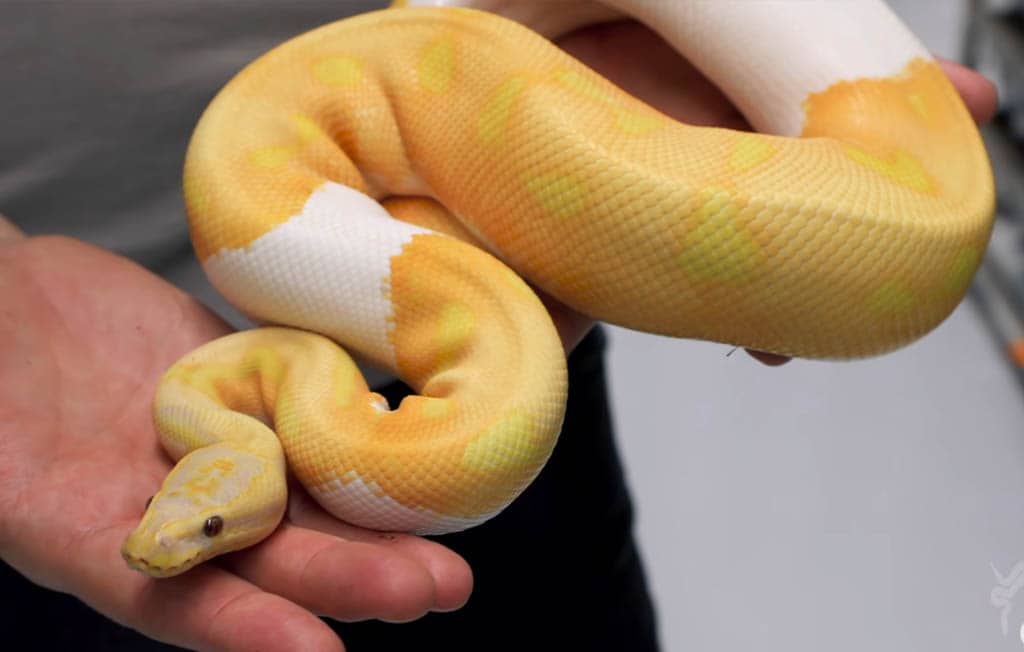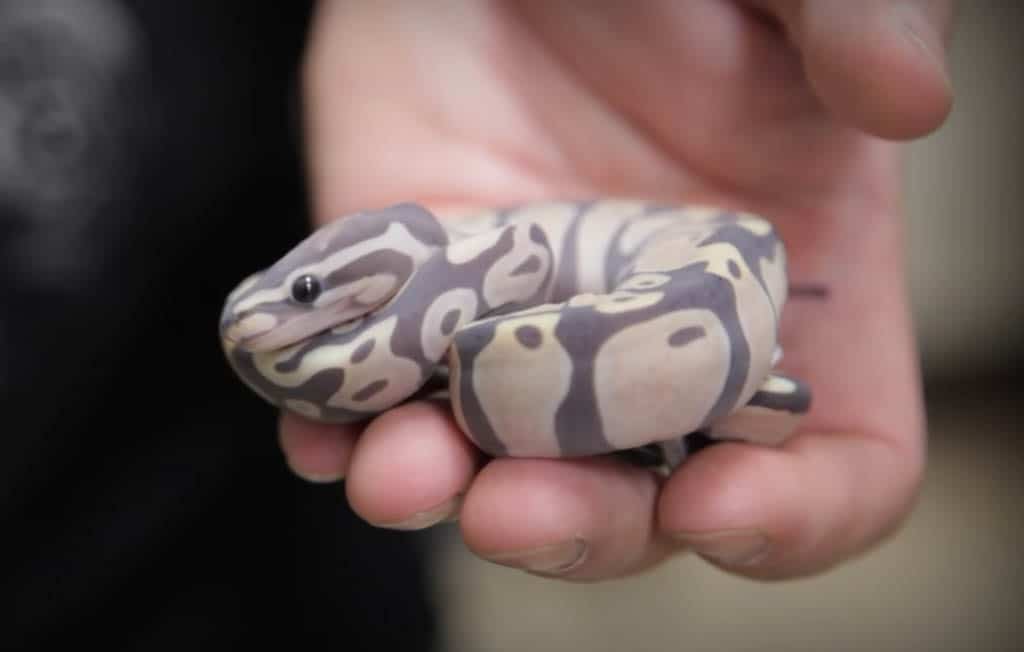So you’ve decided to add a new reptile into your life, and after doing some research, you think a ball python might be the right fit for you. What is the best ball python morph to get?
The good news is, ball pythons are one of the easiest breeds of snake to keep! While they may appear intimidating, they are perfect for beginners and experienced reptile enthusiasts alike. This is because they have a calm-tempered nature that makes them easy to handle. They don’t have a lot of complex husbandry requirements, either.
Before you go out and purchase your new scaly pet, you should consider which morph you want. Morphs are snakes that have been selectively bred to have a certain pattern and appearance.
Because they are so popular, there are hundreds and hundreds of ball python colors and morphs to choose from! How will you ever decide?
Fortunately, you don’t have to be overwhelmed. Read on to learn about 40 of the best ball python morphs to choose from. No matter your budget, we have the perfect option here for you!
Prettiest Ball Python Morphs: From Least to Most Expensive
Even though you’ve decided on a ball python from the numerous reptile options available, you’re still ready to make an immediate purchase!
Next you’ll need to choose a morph. Since there are over 4000 available, this can be a challenge! We’ve compiled this list of 40 of the best ball python morphs ranked from the most to least affordable.
Yellow Belly
Price range: $50
Yellow bellies are very similar in appearance to normal ball pythons, which is why they are the cheapest morph on our list. They have a yellow-toned tint on their bellies, but that is pretty much all that sets them apart from other morphs. When bred with other morphs, though, they tend to produce more unique-looking babies.
Black-Backed
Price range: $50-$100
Black-backed ball pythons, sometimes referred to as just “black,” have an unknown origin. They have a pattern extremely similar to a normal, but have a thick stripe of color running down their spines. Because of their simple patterning and uncertain genetics, these are one of the cheapest types of ball pythons.
Pastel
Price range: $75
Pastel ball pythons have a normal pattern but with a lighter red-brown or tan-colored base. Their bellies are a clean white and their pale green eyes set them apart from other morphs. This is a morph that has been around since the 90s, so they are relatively easy to find and not very expensive.
Phantom
Price range: $100
Phantoms are a cheap morph that is mainly kept by breeders. They have codominant traits that make them ideal for producing unique patterns. They typically have a black base color faded to a white belly and dark golden patterning. They may also have some striping towards the tip of their tail.
Mojave
Price range: $100
First bred in 2000, the Mojave morph is another that is commonly kept by breeders. This is because they are often used to create more eye-striking patterns and morphs. This ball python morph typically has a dark base and patterning of deep browns, yellows, and cream coloring.
Ghost
Price range: $100
Ghost ball pythons are known for their reduced pigmentation. They are hypomelanistic, which means they have less melanin in their scales than is typical. Ghosts have the same pattern as normal ball pythons, but they are paler in color and have an almost faded look.
Butter
Price range: $100
The butter morph originates in the wild, but was first isolated in captivity in the early 2000s. They have a simple appearance with cream and yellow-toned markings. Their base is a light brown. This is a relatively common morph that’s easy to acquire, so they don’t cost very much.
Pinstripe
Price range: $100
The most defining feature of the pinstripe morph is the thick, patternless stripe along the spine. They range in color from shades of brown to copper. Because of their interesting look, they are frequently bred with other morphs to pass on their pronounced stripe.
Red
Price range: $100
Red ball pythons are very similar to normal ball pythons. Their patterning is the same, but they differ in color. Unlike normals, they have a deep red undertone. Because only their color is different, these morphs tend to be on the cheaper side. When bred with other morphs, they bring out beautiful red tones in their babies.
Vanilla
Price range: $100
Despite what you may think based on the name, vanilla ball pythons are not white or pale-colored. Most have a brown base with vanilla-colored blotches throughout their bodies. Their genetic makeup allows them to bring out beautiful colors in other morphs, so they are widely used by breeders in captivity.
Chocolate
Price range: $100-$250
Chocolate morphs are a relatively easy ball python to find. Because of their codominant tendencies, they are often used by breeders. True to their name, they have a dark brown, almost chocolate-colored base with caramel spots and patterning. The more intense the pattern, the more you should expect to pay for one of these snakes.
Fire
Price range: $100-$400
The first fire ball python was originally bred in the 1990s. These snakes typically have a warm brown base color with a tan banding pattern. A fire python can cost as little as $100. When two fires are bred together, a super fire is created, which is usually much more expensive.
Spider
Price range: $150
Spider morphs have a pale, speckled belly and a brown or tan base. What distinguishes them from other morphs are the black markings on the face and the dark bands that resemble spider legs on their bodies. This is becoming a highly popular morph due to their interesting pattern, but they’re still relatively cheap to purchase.
Mystic
Price range: $150
The mystic morph is often compared to the Mojave, but there are some key differences. The patterning is slightly different to begin with, but what makes these ball pythons so unique is how they change colors with age. Typically, mystics are born with a dark black or brown base color that often transitions to a purple or gray tone over time.
Ringer
Price range: $150
Ringers can have normal patterning or that of other morphs, but what makes them unique is a small white ring, usually toward the end of the tail. This ring occurs because their genetic makeup is roughly 5% piebald. When bred, ringers can produce either standard or piebald offspring.
Banana
Price range: $150-$250
First bred in 2003, banana morphs have a tan-based body color. True to their name, they feature bright banana-colored splotches along the body. These ball pythons sometimes have dark spots or specks that resemble freckles. This is a bright and beautiful morph that isn’t going to break the bank if you’re on a budget!
Lemon Blast
Price range: $200
The lemon blast morph is a blend of the pastel and pinstripe genes. When bred together, these two morphs produce a ball python with a bright yellow or orange base. They typically have a thick stripe along the spine that is patternless, though the rest of the body features dark-colored lines.
Champagne
Price range: $200
The champagne morph is one of the most unique ball python types. It is also sometimes referred to as the puma morph. Color-wise, these snakes tend to be either a shade of brown or tan. They typically have a gradient of color, but they do not have any patterning whatsoever.
Clown
Price range: $200
Clown morphs have a very unique pattern in comparison to other ball pythons. They have a tan or brown base which may have hints of copper undertones. They also have a dark dorsal stripe. Clown ball pythons get their name because the first one discovered in 1999 had a teardrop-shaped pattern under its eye.
Pewter
Price range: $200
The pewter morph is created by breeding a pastel ball python with a cinnamon morph. They usually have a light tan or brown base color with keyhole patterning along their bodies. Some have a more uniform pattern while others are more random. Their patterns are typically golden splotches with dark brown or black keyholes in the center.
Ivory
Price range: $200-$300
Ivory ball pythons are patternless and appear white or almost light pink in color. They have black eyes and typically have a yellow stripe down the body. Some ivory pythons will have patches of color on their bodies. The cost of an ivory morph depends largely on the patterning and presence of color on these snakes.
Tiger
Price range: $200-$400
Tiger ball pythons have a light yellow base color that fades to orange along their sides. They have a dark head and patterning that loosely resembles that of a tiger. The origin of this morph isn’t known, and because they are so variable in intensity, they can be purchased at a range of different price points.
Coral Glow
Price range: $250
Coral glows, also sometimes referred to as white smokes, are one of the most well-known hypo morphs. Some of them look very similar to banana ball pythons. Coral glows have orange splotches on a lavender-toned body. The “glow” part of their name originates from the glow-like appearance that their patterning has.
Woma
Price range: $250
The woma gene was first produced in the 1990s. These ball pythons have brown sides that become lighter closer to the spine of the snake. Womas usually have a dark-toned head and a banding pattern. Interestingly, womas are not often used for breeding. This is because when they are crossbred with each other, the babies have a very low survival rate.
Albino
Price range: $250-$400
Albino ball pythons are amelanistic, which means they are unable to produce brown and black pigments in the scales. Because of this, they come in various tones of yellow and have striking red eyes. Depending on the level of contrast in their patterning, these snakes can sell for a wide range of prices.
Piebald
Price range: $300-$400
Piebald ball pythons have the appearance of two snakes spliced into one. They have a white base that contrasts starkly with colored patches all over the body. Although these patches are randomly spaced, all piebalds will have a normal-colored head rather than white. The price of this morph is primarily determined by how much white is present in the snake’s pattern.
Candy
Price range: $350
The candy morph is one of the most interesting types of ball python you can purchase. This is because they undergo drastic changes in color throughout their lifetime. As hatchlings they appear to be albino, but as they age their color transforms into either a lavender or beige color.
Fire Ivory
Price range: $375
Fire ivories are also known as the fire super yellow belly morph. They are a combination of three genes: yellow belly, fire, and ivory. These snakes have a pink or lavender-toned base color. Because of their coloring, some of them have an almost dirty appearance. Fire ivories are another patternless morph, other than a single stripe along their spine.
Purple Passion
Price range: $400
The purple passion morph is achieved by crossing a Mojave morph with a phantom morph during breeding. These ball pythons have lavender-colored bodies. They have pale, almost-white striping down their backs. Their sides are typically patternless, though some do have some visible patterned shapes.
Lavender Albino
Price range: $400
The lavender albino morph was first discovered in the early 2000s. True to its name, this morph is a combination of the lavender and albino traits. With a lavender-toned base, they have a bright yellow pattern, and red eyes to top it all off! Their contrasting colors and unique appearance mean they are one of the more expensive ball python morphs.
Super Blast
Price range: $400
Super blasts are created by breeding together the super pastel and pinstripe morphs. What results is a pastel yellow snake with faded black vertical lines. Though the majority of their body is light, their faces typically have dark spotting. These are expensive, but one of the prettiest ball python morphs.
Bumblebee
Price range: $450
Bumblebee pythons come from breeding the pastel and spider morphs together. The result is a tan or yellow base with thin black stripes and spot patterning that resembles – you guessed it – bumblebees! These snakes are considered one of the most beautiful ball python color morphs and are sought after by breeders and hobbyists alike.
Super Cinnamon
Price range: $450
A super cinnamon ball python is produced by breeding male and female cinnamon morphs together. Super cinnamons have a dark red-brown base. As they age, they begin to fade to a lighter brown or grayish color. They are typically patternless with a light underside.
Highway
Price range: $550-650
The striking highway morph lives up to its name – its markings resemble the pattern on a road! Most of these ball pythons have a pale copper or gray-brown base color. They have a broken yellow line down their spines, just like the lines you see on a highway.
White Wedding
Price range: $650
White ball pythons were first bred in 2007. The morph gets its name from how it was first discovered – hatched in a clutch on the breeder’s “white” wedding day! These snakes have no pigmented scales. Don’t mistake them for albino, though, because they still have the standard dark eyes.
Blue-Eyed Lucy
Price range: $700
Bred from a mix of the Mojave and lesser morphs, the blue-eyed lucy is one of the most expensive ball pythons you can buy. They have a very unique genetic makeup and can be extremely difficult to find. This morph has a white base but may have faint dorsal stripes. What makes them so unique and sought after are their bright blue eyes!
Sunset
Price range: $1000-$1500
Sunsets were first bred in captivity in 2012 and are one of the brightest, most unique ball python color morphs you can get. They have a deep red-orange base color with copper spots and a red head. Because they are so unique, they are one of the most expensive morphs on our list.
Acid
Price range: $1500
Acid ball pythons are a relatively new morph that was first bred in 2015. They generally have a dark base color that’s either brown or black with golden brown spots scattered along their bodies. Interestingly, this ball python morph features an intricate belly pattern that usually includes a wide stripe on the underside of the snake.
Dreamsicle
Price range: $2500
Dreamsicle ball pythons have complex genetics that make them very difficult to produce, so you should expect to pay top dollar if you want one of these snakes. They are typically white or a pale pink tone with random patterning that resembles clouds. They look similar to the piebald morph, but are much more unique.
Scaleless
Price range: $2500
Scaleless ball pythons are by far the most unusual morph, which is why they are one of the most expensive on our list. They were first bred in 2003, and as you might have predicted, have skin instead of scales. The majority of their body is scaleless, though they do have scales on the belly to allow them to move like a regular ball python.
FAQs on Ball Python Color Morphs
What ball python morph should I get?
Choosing a ball python morph boils down to your personal preference, but there are a few factors you should consider.
The first of these factors is price. Though you may want a fancy dreamsicle python, if you’re on a tight budget that might not be a feasible option. You want to make sure that you have enough funds to purchase an enclosure and supplies as well as the snake itself.
Additionally, you should think about extra requirements that certain morphs have. For example, albinos are notorious for having poor vision, which can make feedings difficult. You’ll want to consider these potential issues so that you can prepare yourself ahead of time.
What is the rarest ball python morph?
The rarest ball python is the stormtrooper morph, which was an accidental morph hatched in 2016. It’s so rare, in fact, that it’s not known to have ever been recreated!
This snake had a mostly white coloration with gray and black markings. As the stormtrooper aged, it became darker and eventually the black coloring became more prominent than the white base.
Because its complicated genetic makeup has not been reproduced, you unfortunately won’t be able to bring one home. Maybe someday, though!
What is a scaleless ball python?
Scaleless ball pythons are pretty much exactly what they sound like – ball pythons with skin!
They aren’t completely scaleless, however. They do have scales lining the belly that allow them to move freely and ocular scales for protecting the eyes.
A Final Word on Ball Python Morphs
Ball pythons are one of the best snakes to keep. Because of their docile nature and simple requirements, they are easy to care for and are very popular in the reptile world.
Due to their popularity, they have been bred for many years, and there are now over 4000 ball python morphs to choose from! Some are more simple and very easy to obtain, while others are very unique in appearance and can cost upwards of thousands of dollars.
Deciding on the color and pattern you want can be an overwhelming decision, but no matter what morph you end up choosing, you can’t go wrong with a ball python!

